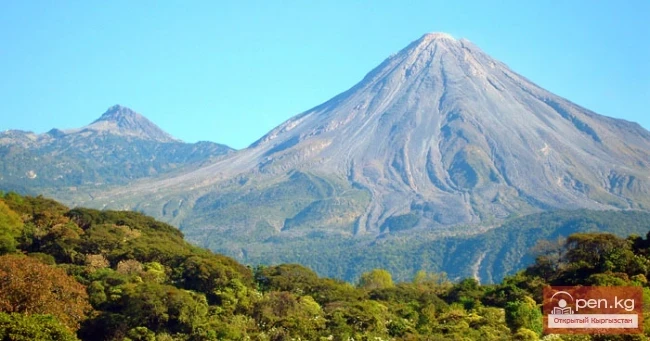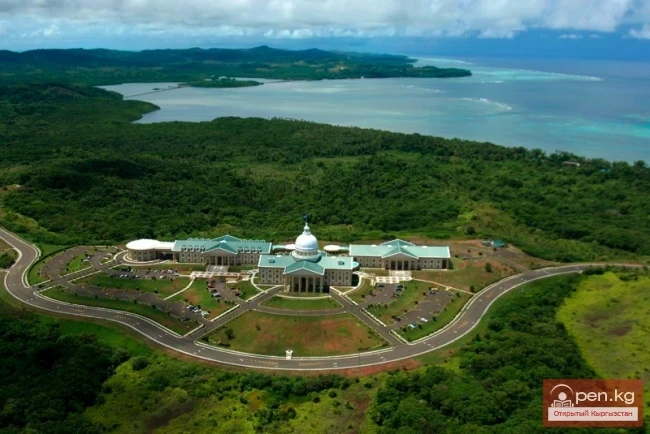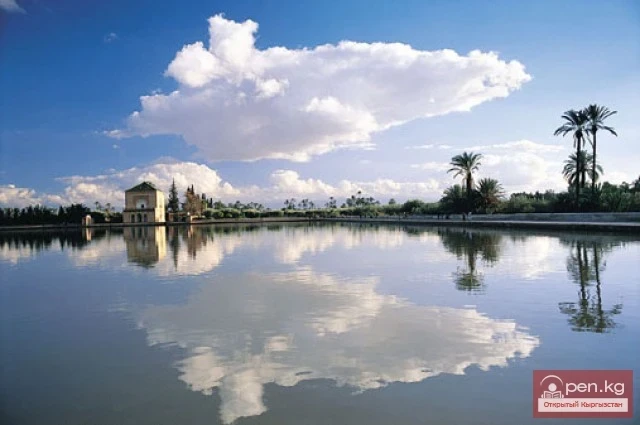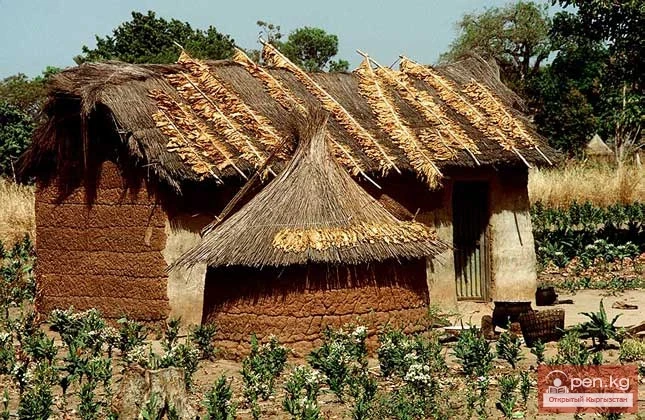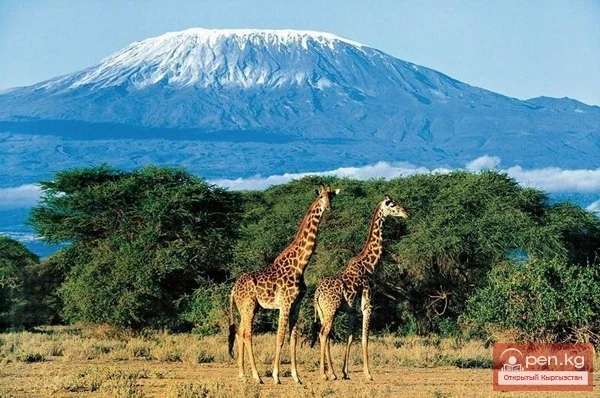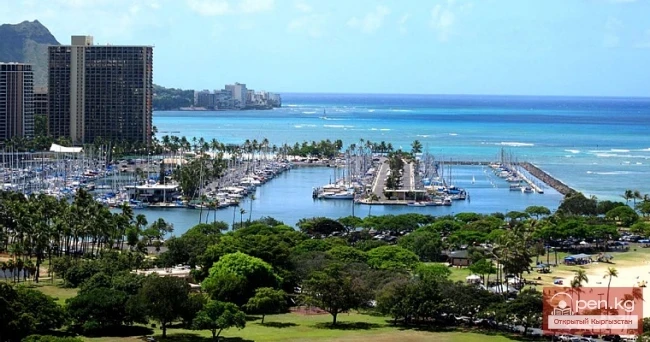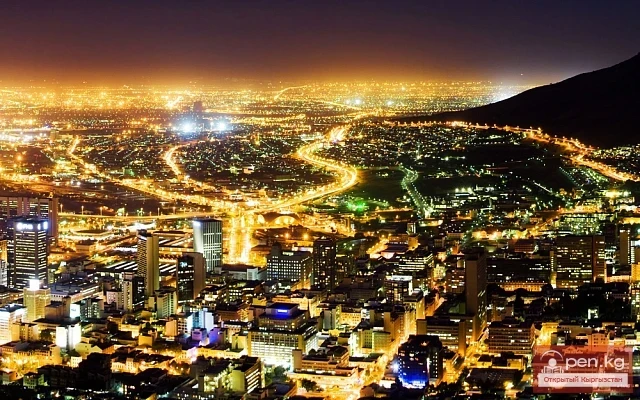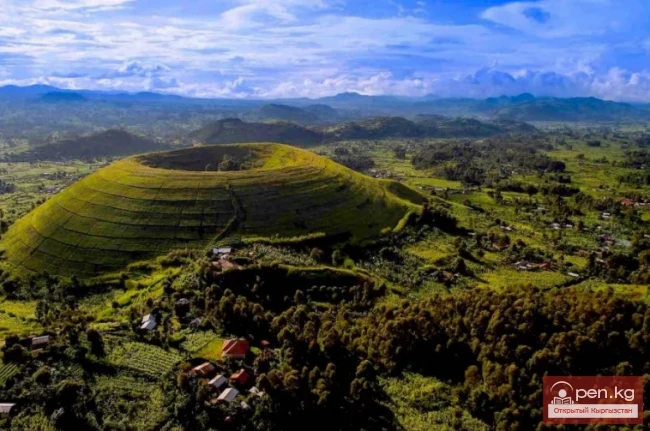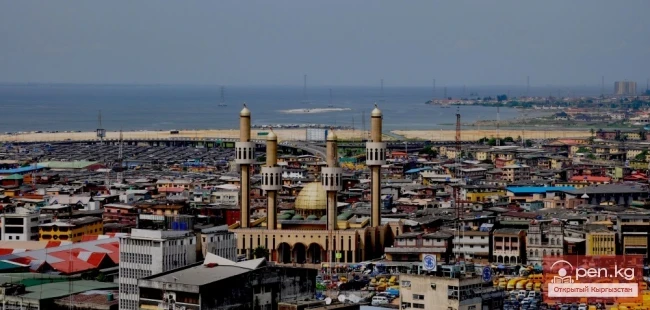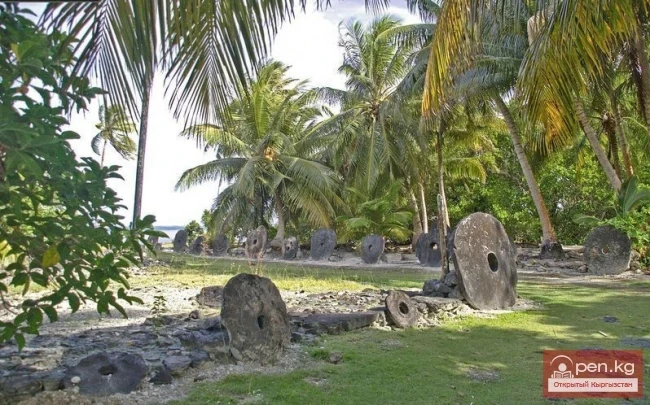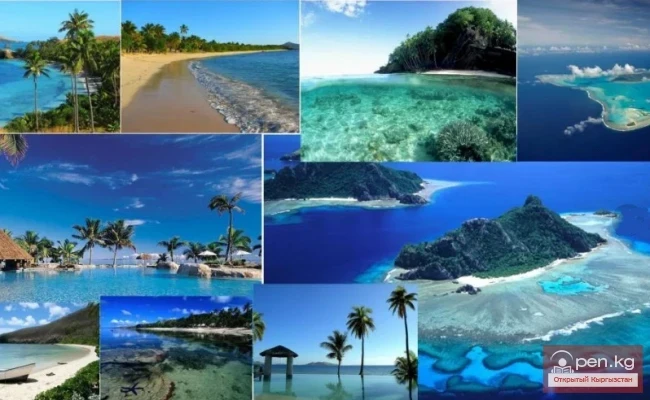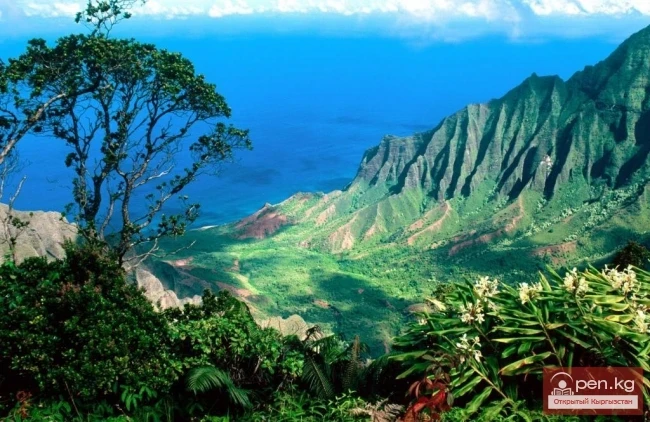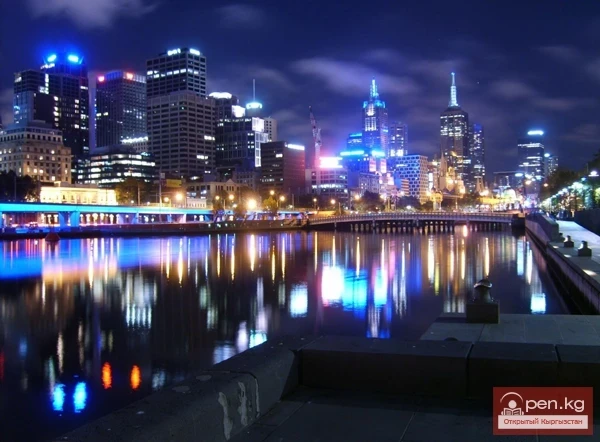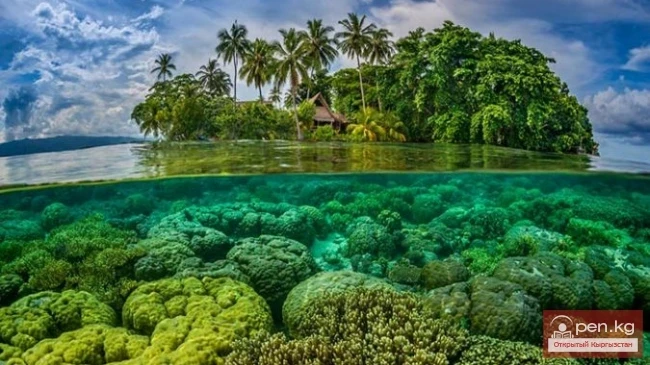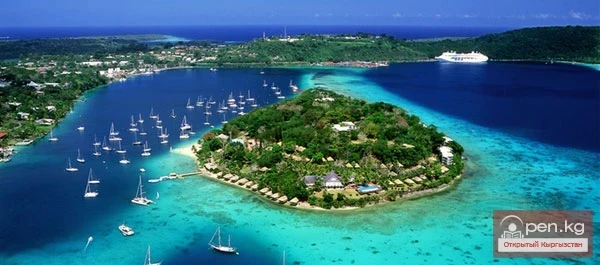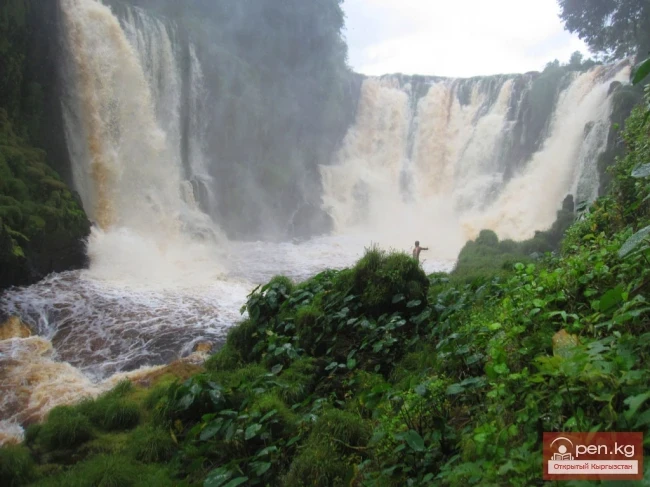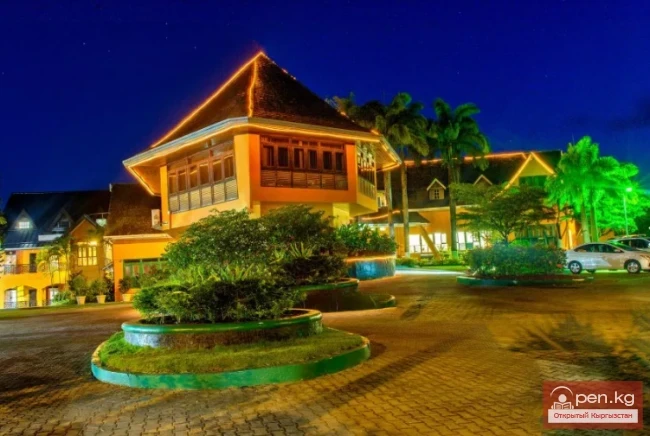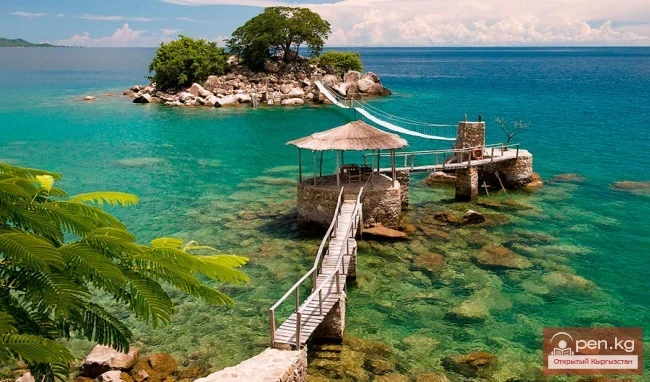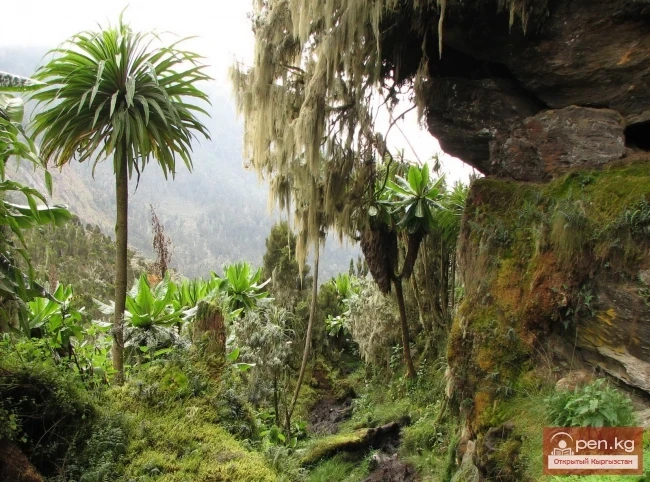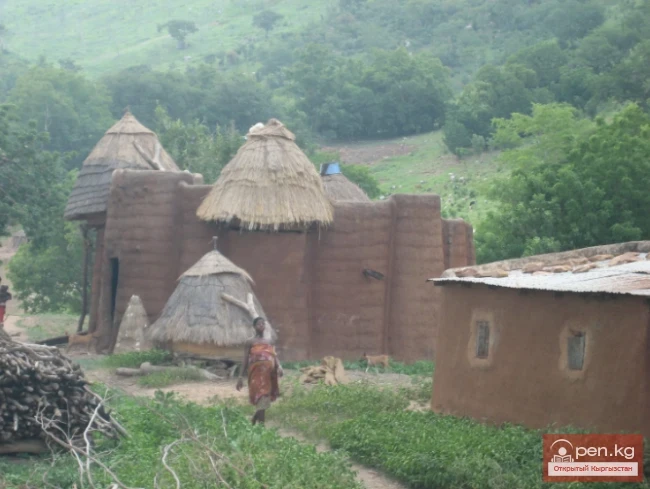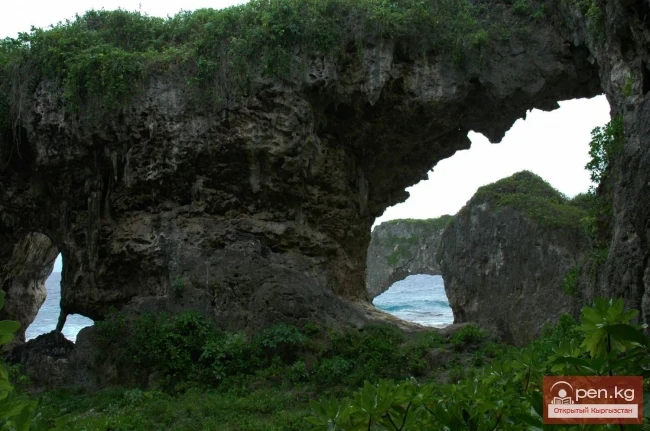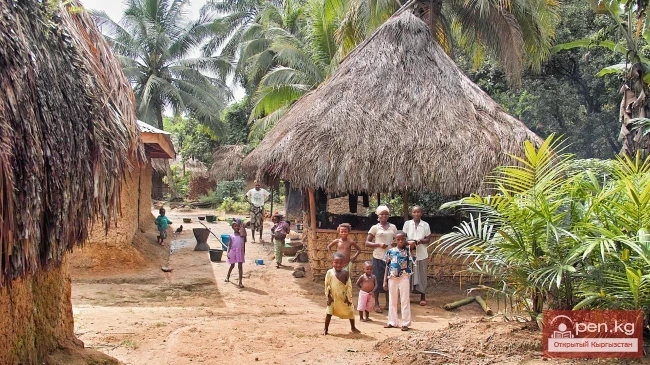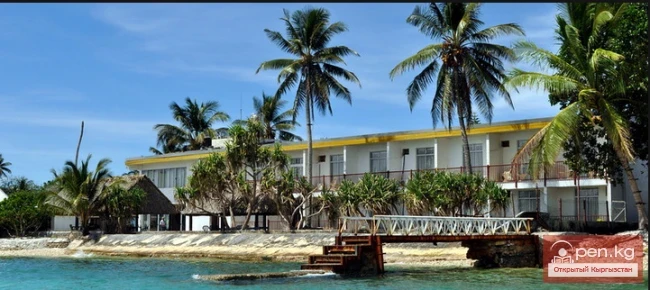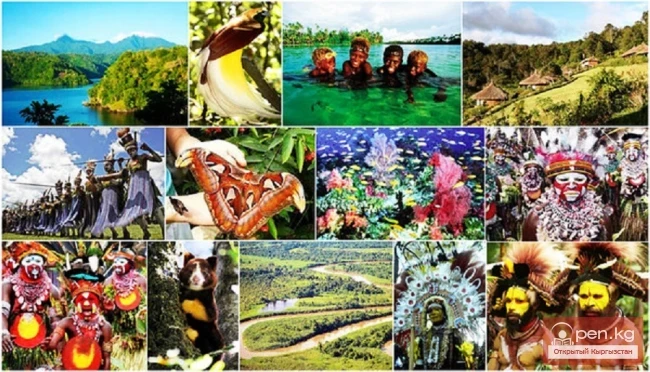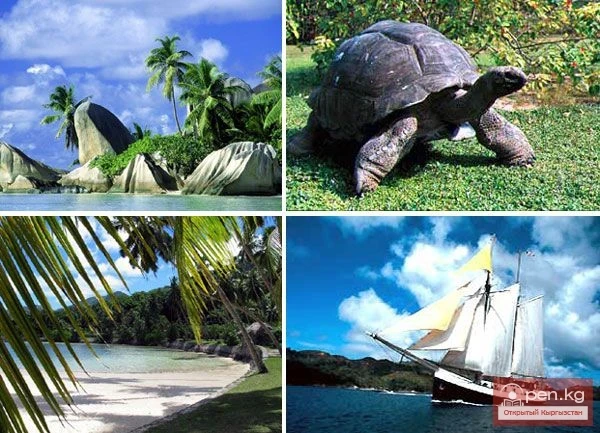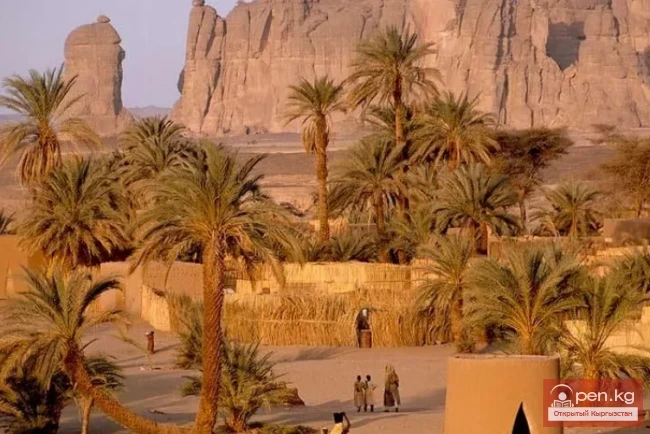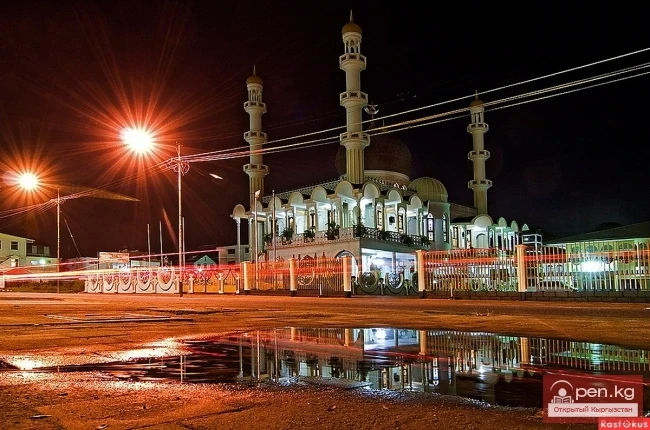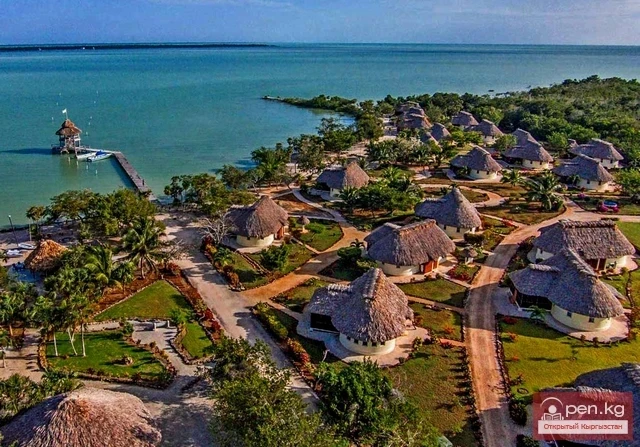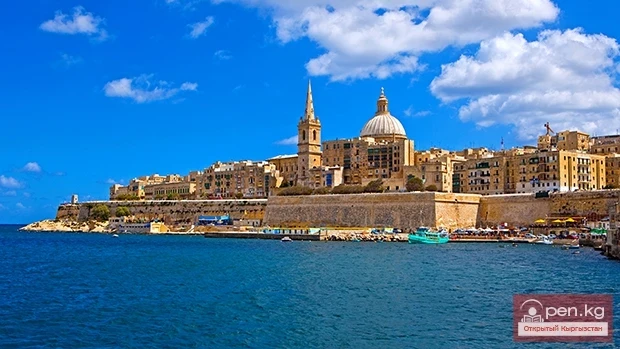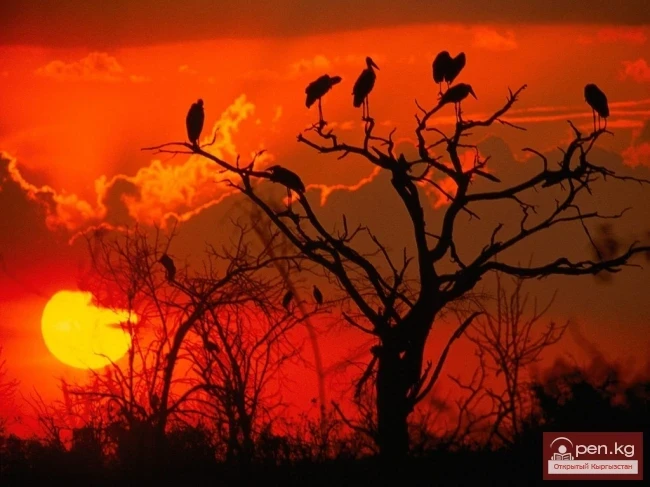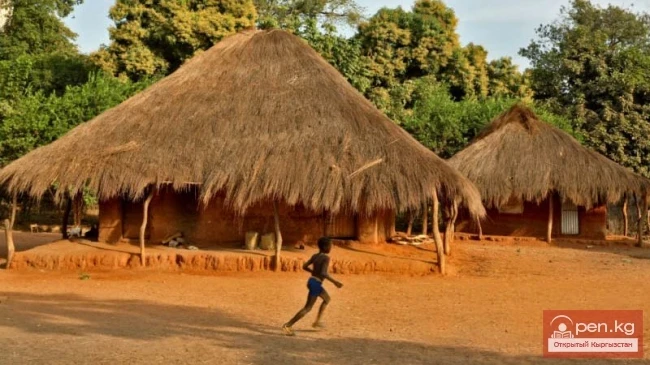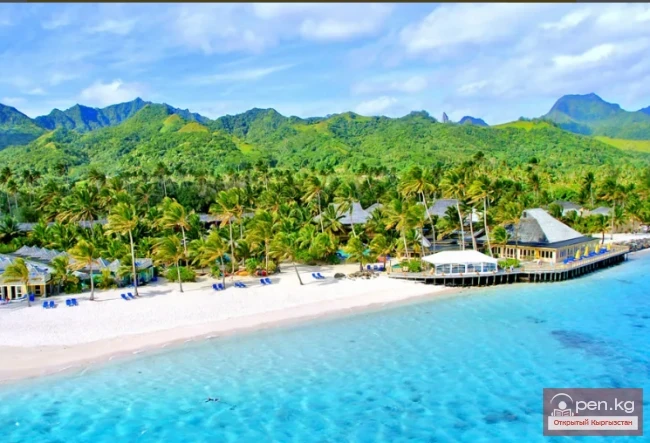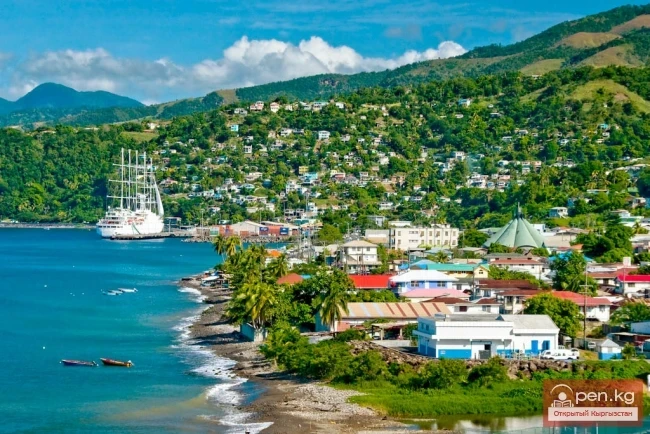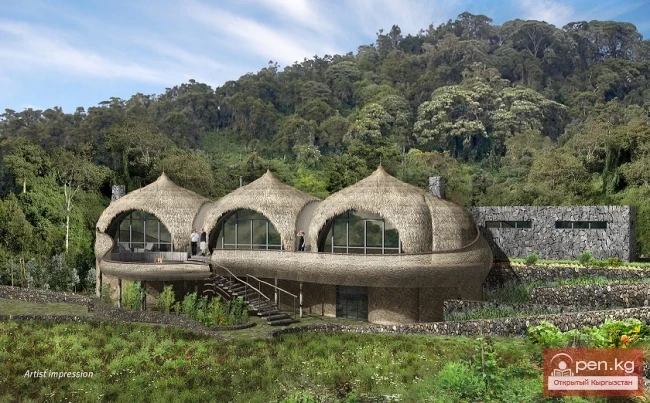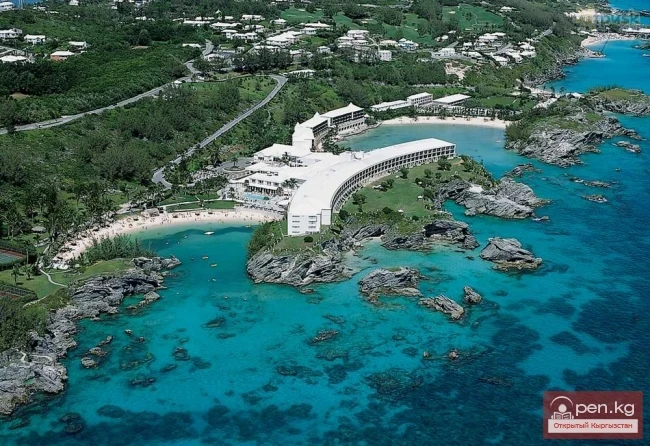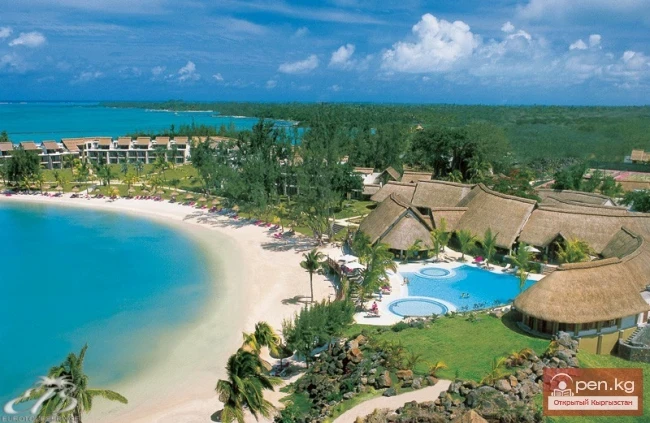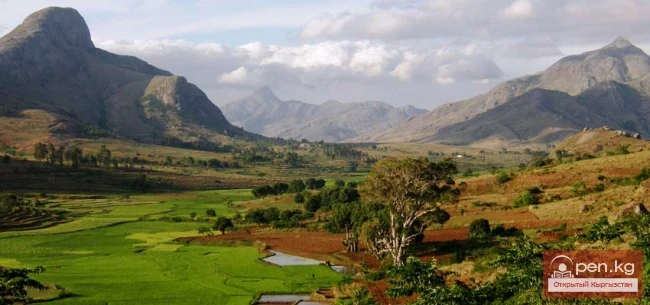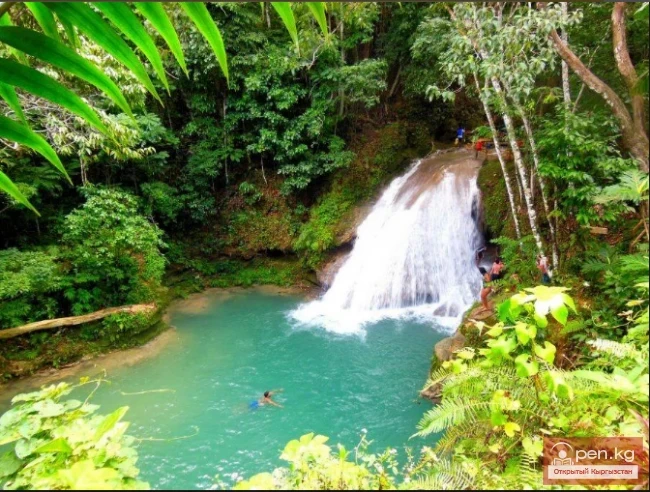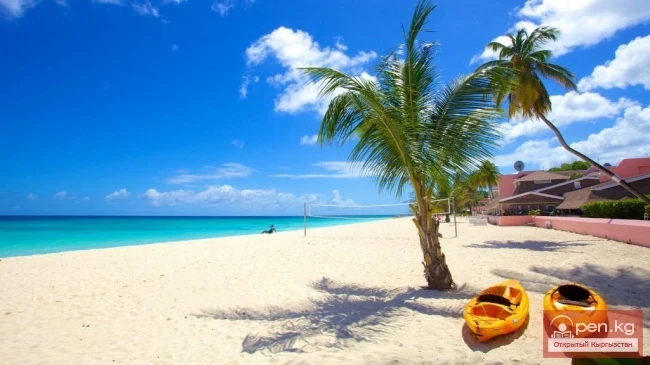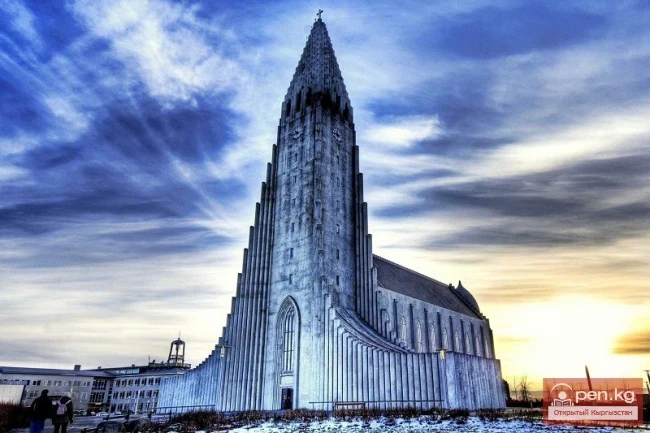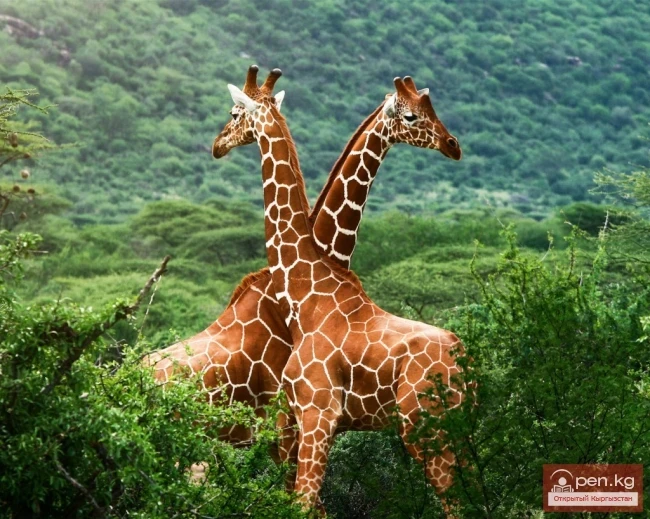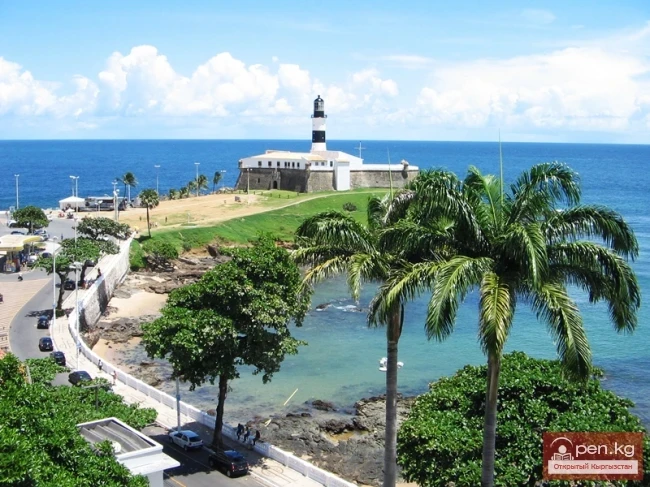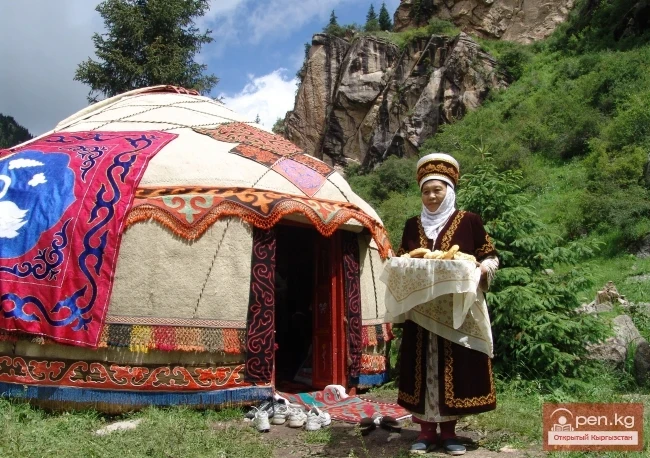LIBERIA. Republic of Liberia
A country in West Africa, on the coast of the Atlantic Ocean. It borders Sierra Leone to the northwest, Guinea to the north, and Côte d'Ivoire to the east. Area - 111,37 thousand km². Capital - Monrovia (about 1 million, including internally displaced persons), largest cities: Buchanan, Harper, Robertsport. Administratively divided into 15 counties. Population - approximately 3.4 million (2004 estimate). Indigenous ethnicities (95%) represent a rather diverse mosaic. A special group is formed by Americo-Liberians (2.5%). The official language is English. Religion: more than 60% of the population adheres to traditional beliefs, 30% are Christians (mostly Protestants), about 15% are Sunni Muslims.
It has diplomatic relations with the Russian Federation (established with the USSR in January 1956, interrupted by the Liberian government in July 1985, restored in July 1986 at the initiative of the Liberians).
National holiday - July 26 - Independence Day (1847).
Liberia is a republic with a presidential form of government. The current constitution was adopted on January 6, 1986. The head of state is the chairman of the National Transitional Government of Liberia (NTGL) Charles Jude Bryant (prior to being elected head of NTGL - a businessman, chairman of the Liberian Action Party), who assumed office on October 14, 2003. The main legislative body is the unicameral National Transitional Legislative Assembly (NTLA). The Speaker of the NTLA is George Dweh, one of the founders of the "Liberians for Democracy and Reconciliation" movement (LURD). The NTLA consists of 76 deputies. According to the provisions of the Comprehensive Peace Agreement of August 18, 2003, seats in the NTLA are distributed as follows: representatives of the former Liberian government, LURD rebels, and the Movement for Democracy in Liberia (MODEL) each have 12 seats, 1 seat is allocated to each of the 18 political parties, 7 seats are for public organizations, and 1 seat each for representatives of the 15 counties.
Key political parties: National Patriotic Party, Unity Party, Liberian People's Party, National Reform Party, Labor Party, Liberian United Party.
The country was founded in the 1820s by Black settlers from the USA, whose ancestors were taken from Africa to America during the slave trade. For a long period (practically until 1980), power in the country belonged to Americo-Liberians. The policies pursued by the ruling elite led to social inequality between the founders of the country and the indigenous population, increasing tension in society. Steps taken by the government in the mid-20th century to rectify the situation did not eliminate interethnic contradictions.
As a result of a sharp deterioration in the socio-economic situation, a military coup occurred in 1980, marking the beginning of a period of instability in its domestic political development. Representatives of the indigenous population came to power, led by Samuel Doe.
After 5 years, constitutional governance was restored in Liberia. In 1989, a civil war began in the country, resulting in power shifting to the National Patriotic Front of Liberia (NPFL) led by Charles Taylor. In the presidential elections held in 1997, he confirmed his authority as head of state (76% of the votes). In 1999, civil war erupted again in Liberia. LURD opposed Charles Taylor, demanding his resignation.
The years 2002-03 in Liberia were marked by acute confrontation between the government and the "Liberians for Democracy and Reconciliation" movement, which was joined by the "Movement for Democracy in Liberia," created in 2003.
By the summer of 2003, their armed formations controlled a large part of the country's territory, and the confrontation moved directly to the Liberian capital.
Under pressure from the Anglo-Saxons and the Economic Community of West African States (ECOWAS), Charles Taylor, accused by the Special Court for Sierra Leone of committing crimes against humanity in that country, transferred power to Vice President Moses Blah on August 11, 2003, and fled to Nigeria, which granted him political asylum.
On August 18, 2003, in Accra (Ghana), a peace agreement was signed between the government, LURD, and MODEL with the mediation of ECOWAS, which provided for an immediate cessation of hostilities, the establishment of a transitional government, the release of all political prisoners and prisoners of war, the reorganization of the Liberian army to include part of the rebel formations, disarmament, demobilization, and reintegration of combatants. The document defined the duration of the transitional period as 2.5 years and the deadlines for holding general elections as no later than October 2005.
The National Transitional Government of Liberia (NTGL) was formed on October 14, 2003, with Charles J. Bryant as its chairman (term of office until January 1, 2006). After the NTGL came to power and the deployment of a UN peacekeeping contingent in the country, the domestic political situation gradually normalized; however, in the peripheral areas of Liberia, attacks by bandit groups on the local population still occur.
On April 15, 2004, the program for disarmament, demobilization, rehabilitation, and reintegration (DDR) of ex-combatants was resumed, and officially completed on October 31. As of the end of 2004, approximately 102,000 former fighters had been disarmed and demobilized.
According to estimates by the UN High Commissioner for Refugees (UNHCR), 340,000 Liberian refugees will be able to return home within the next 3 years. In 2005, the return of about 150,000 refugees is expected. Since the start of the repatriation program on October 1, 2004, UNHCR has returned 4,300 refugees to Liberia.
The activities of the government and parliament are conducted in an atmosphere of constant accusations of corruption. There is an increase in social tension, as the NTGL is unable, due to limited resources, to address the social problems of the population. In October 2004, the "Law on Electoral System Reform" was adopted, paving the way for parliamentary elections, which took place on October 11, 2005. The country's president (after the second round of voting on November 8, 2005) was elected Ellen Johnson-Sirleaf (Unity Party), who received 59% of the votes.
The largest number of seats in the Senate (7 out of 30) was won by the Coalition for the Transformation of Liberia (CTL), 4 seats by the National Patriotic Party (NPP), and 3 seats each by the Congress for Democratic Change (CDC) and the Unity Party, while the remaining seats went to smaller parties. In the House of Representatives, which has 64 deputies, the CDC received 15 seats, the Liberty Party 9, and the CTL and Unity Party each received 8. The remaining seats went to other parties.
The country's economy is in decline. According to IMF estimates, GDP in 2004 was $474.6 million (2003 - $442.2 million). GDP per capita - $139.6. More than 80% of the working-age population is unemployed.
The overwhelming majority of the population lives below the poverty line. 76.2% of Liberians live on less than $1 a day. The share of GDP: agriculture, including forestry - 70% (sugarcane, cassava, oil palm crops, rice); industrial production - 8%, services - 22%.
The main sector is agriculture (60% of GDP). Sugarcane, cassava, oil palm crops, and rice are grown.
Industry is mainly represented by mining enterprises. Liberia has significant reserves of gold, diamonds, and iron ore.
The state budget for the 2004/05 fiscal year was about $80 million - 10% of the pre-war level. Currently, it is replenished through revenues from the maritime registry ($11.34 million in 2004), trade taxes, and customs duties. Major donor countries include the USA, Germany, the Netherlands, and Japan. Liberia has a huge public debt - $3.21 billion (2004).
Foreign trade (2004): exports - $41.75 million (rubber, iron ore); imports - about $360 million (fuel, cars, consumer goods, food, primarily rice). Main trading partners - France, Japan.
International airport - Robertsfield (65 km from Monrovia).
Major newspapers: "Daily Observer," "Mirror," "Liberian Observer," etc. News agency - "Liberian Journalist."
